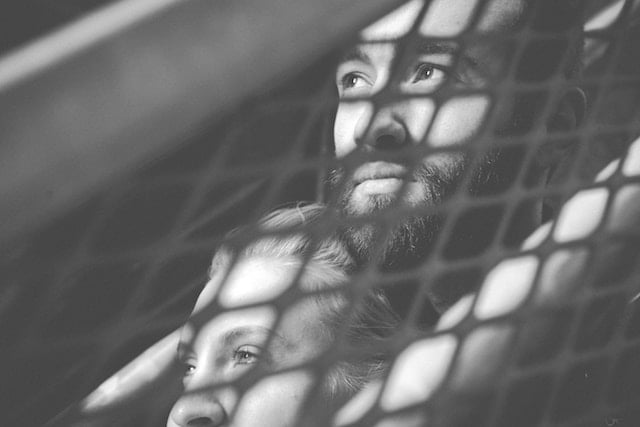The term “narcissism” seems to get thrown around like confetti.
My view on labels is: psychological diagnostics in the system don’t work, precisely because everyone is given one in the system if they want their insurance to pay for it.
Usually labels are arbitrary, and after working in the system for the majority of my adult life, I’ve seen people diagnosed with totally different diagnoses by different doctors. I’ve also seen people, who seemed perfectly sane to me, but from really f*cked up families, diagnosed with a ridiculous amount of disorders simultaneously, because they don’t fit into any one category.
I’ve known someone who was diagnosed with schizophrenia and bipolar disorder when she was coming down from a three-night meth stint. I haven’t been up for three days straight, but I have no doubt that if I were to, I’d display schizophrenic and bipolar symptoms too. Still, that diagnosis is a part of her written history.
What’s most important here is the pattern at play, not the labels. No one is right or wrong in this piece.
It’s said that if you put 100 people in a room and two of them are on acid, those two people tripping will inevitably find each other, and end up leaving together. They say this is also true of bipolar people. They find each other by vibe alone.
People of like vibes find each other. This always leaves me to wonder about people with like voids.
Narcissism is the shadow counterpart of codependency. Narcissism doesn’t exist without the codependent. This makes me think, when the dance is in motion, it’s because we’ve found ourselves someone with a like void.
If everyone on the planet had a healthy self-concept, except narcissists, the narcissism wouldn’t last long because no one would care enough to play the game. Our idea of a “healthy person” wouldn’t be jeopardized, thus jeopardizing the entire game the narcissist plays.
Narcissists are out to punish other people the second their sense of self (which is false even as they see it) is rattled. This diverts attention from their own flaws while positioning themselves as the superior who’s got it all figured out. However, the narcissist really wants someone else to carry their pain.
Codependents go out of their way to please when their self-worth is rattled. Usually, they’ll overcompensate for their own perceived flaws with niceties, bending over backwards to “fix” someone else’s problems—including themselves—if the someone else makes the codependent out to be the problem.
They genuinely seek to be good, and never want to make anyone feel pain because they name themselves the carriers of the world’s pain, and don’t want other people to have to carry it.
This is a radical assertion for sure, but hear me out…
What if, at the simplest level, narcissism and codependence are the flip side of the same coin, and that coin is titled “I have no f*cking clue how to be comfortable with intimacy—but I desperately want it”?
Someone comfortable with intimacy is someone who’s got a solid sense of character that can’t be defiled in the sense that they don’t feel their worth is contingent upon the approval of another. They won’t deviate from their integrity because they’ve likely never had to defend themselves to maintain it in the way someone with a volatile sense of intimacy has had to.
Both the narcissist and the codependent have likely had to defend themselves for reasons that made little sense to them, because they didn’t originally intend to be “offensive” which made them feel “wrong.”
The narcissist externalizes feeling wrong by projecting all of their fear of their flaws onto the codependent, making the codependent feel totally crazy—especially if the codependent is highly empathic. The narcissist becomes offensive to control their own defence.
The codependent internalizes feeling wrong, and seeks to be better in hopes of proving they meant no offence, even in situations where none is assumed.
They’ve both built up, time and time again, tactics to combat the feeling of extreme unworthiness.
The narcissist is incredibly inauthentic. They don’t know, without the validation of others who will concur with their projected identity, what their true worth is. To point out an inauthenticity in a narcissist will always lead you down a path of burning coals.
A codependent may or may not be inauthentic, but they definitely hide their authenticity. In far too many cases, they may only offer up their authenticity to the narcissist, making some kind of sacred offering for truth that’s an exclusive deal between the two of them. The narcissist is then given free reign to experience authenticity vicariously through someone else with one objective in mind: to own it for themselves. When they realize they can’t, they’ll stop at nothing to demolish it.
Narcissists give a lot of sh*t—codependents take it. Narcissists take a lot of energy—codependents give.
Narcissists are toxic. Truly.
They’ll make you fat, suck you dry, spit you out, drown you in their criticisms that are often disguised as backhanded comments of praise, but without the praise. They’ll be the marionette and you’ll be the puppet in your own mind. They will assess your weak spots, and tease you with them until those weaknesses are ready to choke you. And then, they will come and save you from your weakness, so you owe them for their generosity.
You will be made to feel guilty. You will be made to feel confused, small, and ashamed for having needs, and you will not understand a f*cking thing that’s going on. Yes, it’s toxic. It sucks, and it needs to stop.
Now, let’s get to the codependent part. No one who was truly comfortable with self-intimacy would ever engage in a narcissist’s game.
If the voids are the same, both colored in “I’m not enough, but I desperately want to be,” the narcissist gets to be the perpetrator, the codependent the victim. Both, the abuser.
One abuses others as a means of not facing the self.
One abuses the self as a means of not facing others.
How does one abuse the self as a means of not facing others? By choosing to love a narcissist who’s probably never seen the real you a day in your life with utmost appreciation for your being and continuing to show up at their back door, never to be let in, because our truth is, we’re afraid to be seen for who we truly are. So, we pick a narcissist who won’t see us anyway, and get to call ourselves a victim in the end.
But, I’m here to say, our victimhood is upheld by our “not enough-ness,” and not by the narcissist.
As a reformed highly empathetic codependent, I’m not going to focus on the narcissist, nor will I try to save them. If there’s anything the narcissists who’ve shown up in my life have taught me is: we’ve gotta save ourselves.
Sadly, most of my codependent peeps haven’t considered saving themselves a day in their lives. They’re always busy saving someone else. Dare they be so “narcissistic” as to only think of themselves? Yes, that’s what I’m here to tell you to do.
If you’re codependent, I want you to be even more selfish than your narcissist told you you were, and actually wholeheartedly own your space—your mental and physical space—the space where you make life choices. Your expansion requires you to do so. I assure you.
Your best asset to combat the effects of narcissism is, hands down, self-care. Whether you’re in a codependent relationship right now or you’re out of one that’s a fresh wound, the insidious ramifications of narcissistic abuse don’t leave easily.
They daze you for as long as you’re still focused on the narcissist and not on yourself (in a healthy way, not an internalization way). Which is ironic, because the narcissist demands we focus on ourselves in the most negative light. They provoke weaknesses, like a cat and mouse game, just for fun. And, even though you’re the mouse trying to figure out how you’re going to make it out of the maze, your sole focus is on the cat.
No clarity can come when they’ve got us split between focusing on the cat and the maze. We become so distorted we forget we’re a mouse. Sometimes, we even think we’re the cat.
Self-care isn’t just new age fluff, it’s spirit and science. It’s essential to be in alignment with your source, your strength, and your essence. Self-care doesn’t have to be a weekly pedicure or massage, or going to the gym three days a week. Self-care can be, and is as simple as, looking in the mirror and saying to yourself, “Wow, I haven’t seen you in a while. It’s so good to see you.”
You are not the things they’ve made you believe about yourself, so please my love, do yourself a favor…tap into that gorgeous pumping heart of yours, feel it out, and write about it. Write your heart a love note from your head for all it’s been through.
Self-care is being grateful for who and what you are and the sensual experiences you’ve called into your life and are capable of having. Self-care is knowing you don’t have to defend yourself, nor are you responsible to sugar-coat your truth for the sake of someone else’s feelings.
Self-care is giving yourself permission to walk away. Giving self-love a greater foundation in your heart than the foundation of fear that’s kept you imprisoned to a toxic relationship.
Self-love isn’t rehashing why it happened or how you’re going to handle the backlash of leaving. It’s thinking about what you want—and moving your ass in the direction of it, at all costs.
If you wanna save someone, save yourself.
Only when we, as codependents, fill our own voids and get willing to face our fears of not being enough by letting ourselves be authentically seen in our lives, is when we become impermeable to subconsciously inviting the narcissistic pattern into our lives. Self-care is the first step.
Nothing outside of you is holding you back—not even the narcissist.
~
Author: Stacy Hoch
Image: Unsplash
Editor: Lieselle Davidson
Copy Editor: Emily Bartran
Social Editor: Taia Butler
Ready to join?
Hey, thanks so much for reading! Elephant offers 1 article every month for free.
If you want more, grab a subscription for unlimited reads for $5/year (normally, it's $108/year, and the discount ends soon).
And clearly you appreciate mindfulness with a sense of humor and integrity! Why not join the Elephant community, become an Elephriend?
Your investment will help Elephant Journal invest in our editors and writers who promote your values to create the change you want to see in your world!
Already have an account? Log in.
Ready to join?
Hey, thanks so much for reading! Elephant offers 1 article every month for free.
If you want more, grab a subscription for unlimited reads for $5/year (normally, it's $108/year, and the discount ends soon).
And clearly you appreciate mindfulness with a sense of humor and integrity! Why not join the Elephant community, become an Elephriend?
Your investment will help Elephant Journal invest in our editors and writers who promote your values to create the change you want to see in your world!
Already have an account? Log in.
Ready to join?
Hey, thanks so much for reading! Elephant offers 1 article every month for free.
If you want more, grab a subscription for unlimited reads for $5/year (normally, it's $108/year, and the discount ends soon).
And clearly you appreciate mindfulness with a sense of humor and integrity! Why not join the Elephant community, become an Elephriend?
Your investment will help Elephant Journal invest in our editors and writers who promote your values to create the change you want to see in your world!
Already have an account? Log in.
 Share on bsky
Share on bsky






Read 20 comments and reply